Last Updated on June 1, 2025 by Jocelyn
Lemon verbena is a flowering plant from the Verbena family, also called lemon beebrush. It has tiny purple or white flowers that bloom in late summer.
This perennial grows in USDA Zones but is often treated as an annual in cold areas. It’s short-lived and usually replaced every few years. Gardeners love its shiny, lance-shaped leaves that smell and taste like lemon.
The leaves can be used fresh or dried in salads, fish, pork, desserts, herbal teas, and cocktails.
Lemon verbena grows well with basil, thyme, rosemary, and lemongrass. It also pairs nicely with tomatoes, cucumbers, and beans.
Flowers like marigolds, lavender, and nasturtiums are great companions too. These plants help repel pests, support healthy growth, and create a balanced garden.
Table of Contents
ToggleBenefits of Companion Planting With Lemon Verbena
Lemon verbena is a wonderful plant with a fresh, lemony scent. It is not just great for making tea, but also for helping other plants in your garden. When you grow it with other plants, you can enjoy many benefits. These benefits can help your garden stay healthy and full of life.
| Benefit | Description |
| Repels Pests | Lemon verbena’s strong smell keeps harmful bugs away from your plants. |
| Attracts Pollinators | The flowers of lemon verbena attract bees and butterflies, which help other plants grow. |
| Improves Growth | When planted near vegetables like tomatoes, it can help them grow better. |
| Enhances Flavor | The scent and natural oils can make nearby herbs and veggies taste even better. |
Want to learn about companion planting? Check out my guides:
Best Companion Plants for Lemon Verbena
When picking companion plants for verbena, it’s important to think about growing conditions. Verbena loves hot, sunny, dry weather. If it gets too much shade or water, it can get powdery mildew. The best verbena companions also like it hot, sunny, and dry.
Also, think about color and height when choosing plants. Verbena comes in different shades like white, pink, red, purple, and blue. It doesn’t grow more than a foot (31 cm) high. Picking a color palate for your garden is up to your taste. Some flowers that look nice with verbena are marigolds, nasturtiums, and zinnias.
Lemon Verbena plants are grouped into three types based on the types of companion plants they grow well with.
- Companion Herbs for Lemon Verbena
- Companion Vegetable Plants for Lemon Verbena
- Companion Flowering Plants for Lemon Verbena
Best Companion Herbs for Lemon Verbena
Lemon verbena grows well with many herbs in your garden. Some good companion plants for lemon verbena are basil, rosemary, and thyme. These plants like the same kind of soil and need a lot of sun, just like lemon verbena. When you plant these herbs together, they can help each other grow better.
Basil
Basil benefits lemon verbena by repelling pests like aphids and mosquitoes. Both plants love plenty of sunlight and well-drained soil. In my garden, basil and lemon verbena grow strong together, helping each other stay healthy.
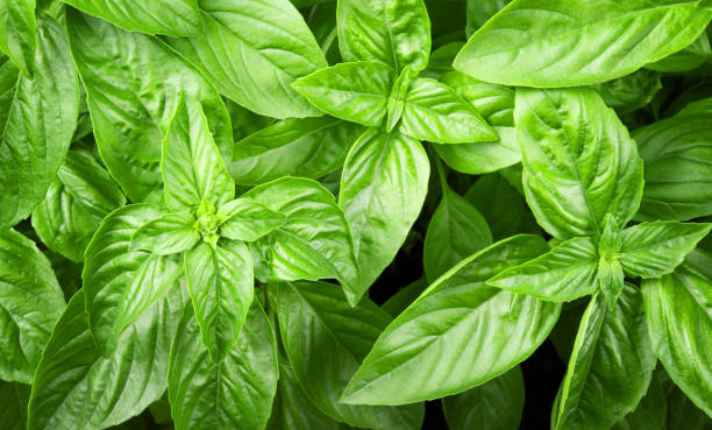
Thyme
Thyme is a great companion for lemon verbena because it helps keep the soil moist and weed-free. Both plants need lots of sun and can handle dry conditions. Planting thyme near lemon verbena has kept my garden neat and reduced unwanted plants.
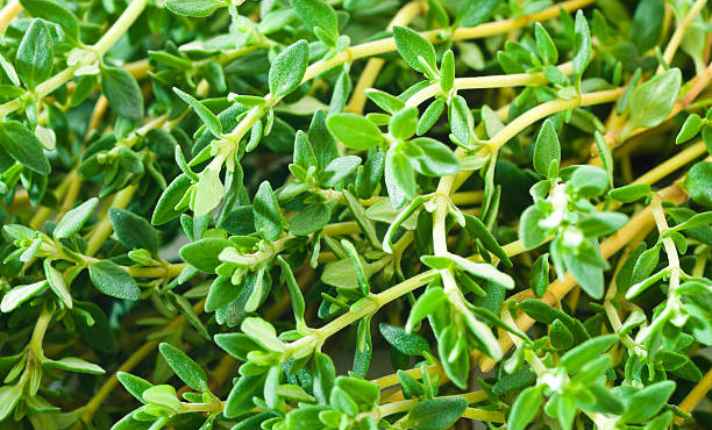
Rosemary
Rosemary and lemon verbena thrive together because they both prefer sunny, dry conditions. Rosemary can also deter pests that might harm lemon verbena. I always plant them together for their wonderful fragrance and mutual growth support.
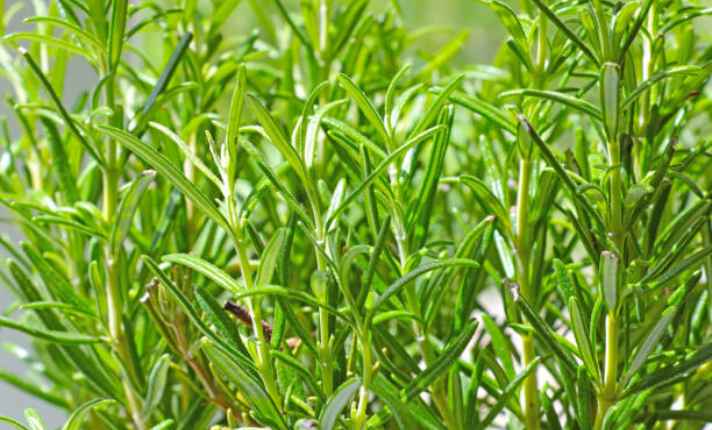
Lemongrass
Lemongrass is a good match for lemon verbena as it helps repel insects like mosquitoes. Both plants enjoy full sun and need regular watering. Having lemongrass next to lemon verbena in my garden has kept pests away and boosted their growth.
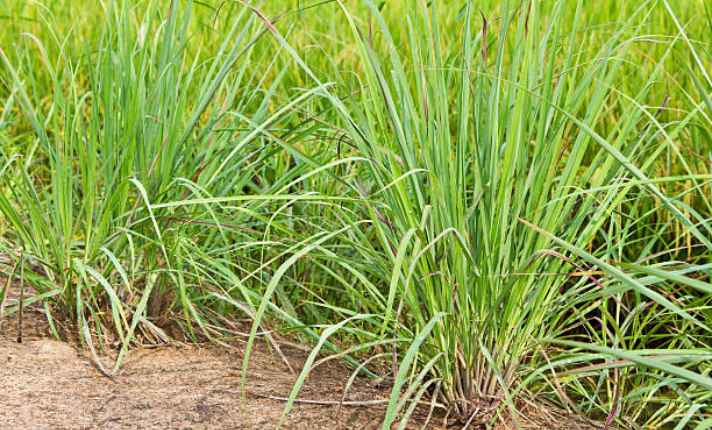
Best Companion Vegetable Plants for Lemon Verbena
Lemon verbena grows best with certain vegetables. These vegetables help lemon verbena by keeping the soil healthy and keeping pests away. They also enjoy the same growing conditions, like lots of sun and water. Here are the best companions for lemon verbena:
Tomatoes
Tomatoes thrive next to lemon verbena because both need full sun and well-drained soil. Lemon verbena’s strong scent repels pests like aphids and whiteflies, which can harm tomatoes. Additionally, the fragrance of lemon verbena can enhance the flavor of ripe tomatoes.
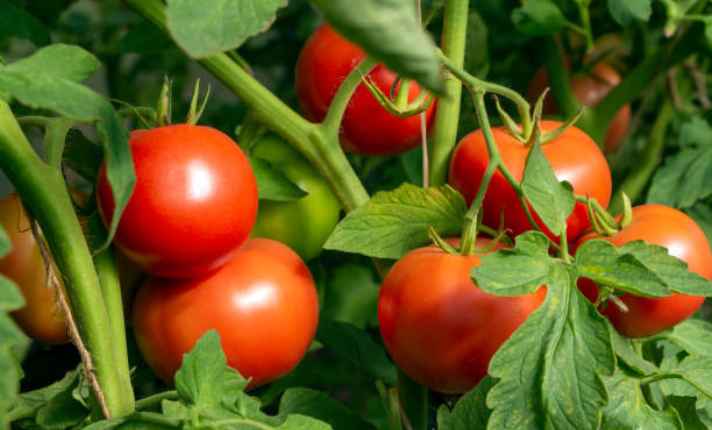
Cucumbers
Cucumbers make a great pair with lemon verbena. They both require similar amounts of water and sunlight. Lemon verbena acts as a natural pest deterrent, protecting cucumbers from beetles and aphids. Planting them together can lead to healthier cucumber plants and a pleasant-smelling garden.
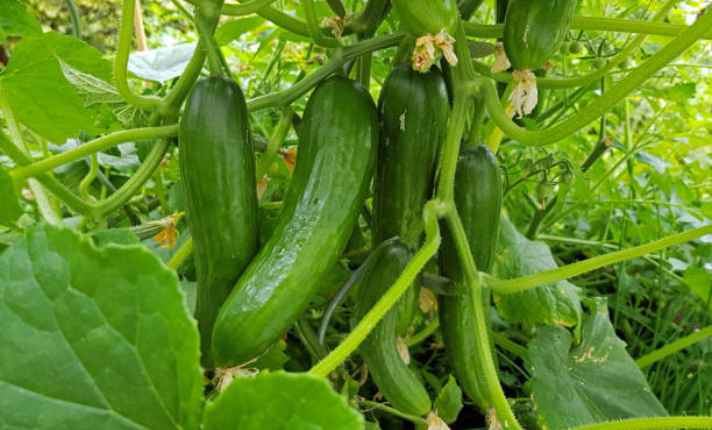
Beans
Beans, especially bush beans, are excellent companions for lemon verbena. Beans fix nitrogen in the soil, enriching it and benefiting the growth of lemon verbena. In return, lemon verbena helps keep pests away from the beans, ensuring they grow robustly. This mutual benefit enhances the overall health of your garden.
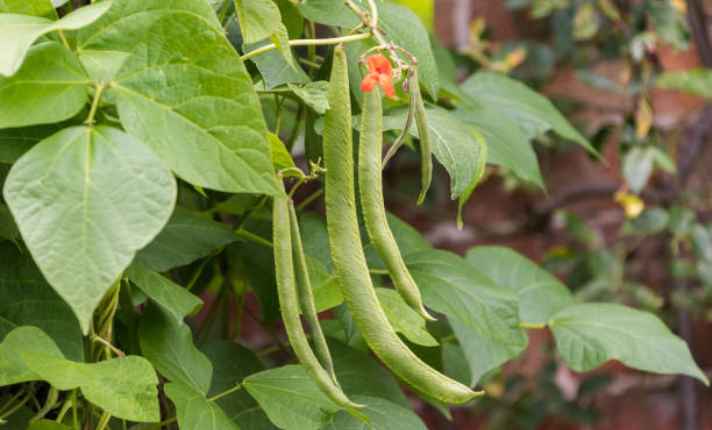
Best Companion Flowering Plants for Lemon Verbena
Choosing the right flowering plants to plant near your lemon verbena can make a big difference. It can help your lemon verbena grow better and make your garden more colorful. They also help the soil stay healthy and bring in pollinators, which are insects that help plants grow. By planting good companions, you can create a garden that is not only pretty but also healthy and full of life.
Marigolds
Marigolds are excellent companion plants for lemon verbena. They help keep harmful insects like nematodes, aphids, and whiteflies away because of their strong scent. This scent confuses these pests and keeps them from damaging the plants.
Marigolds also attract beneficial insects like ladybugs, hoverflies, and lacewings. These good bugs eat the harmful insects and help keep the garden healthy.
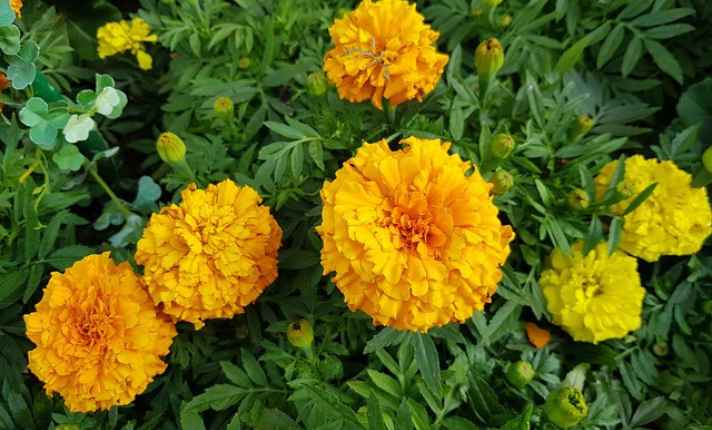
Both lemon verbena and marigolds grow well together because they enjoy similar growing conditions. They need lots of sunlight and well-drained soil. Planting lemon verbena next to marigolds makes both plants thrive.
Lavender
Lavender is a wonderful companion plant for lemon verbena. Both plants love lots of sunlight and well-drained soil. Lavender helps keep pests like moths, fleas, and mosquitoes away with its strong scent.
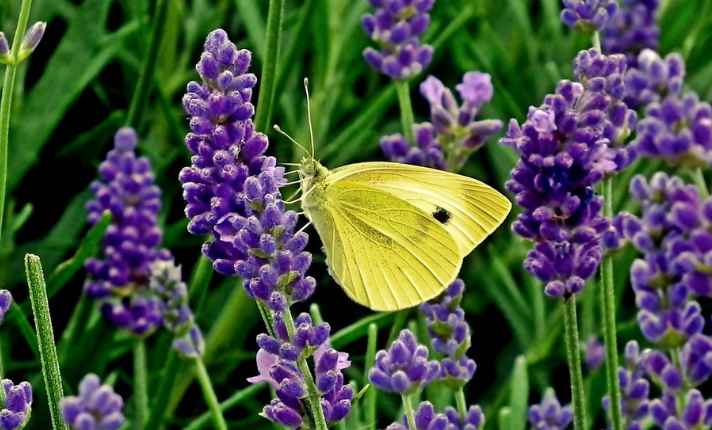
Lavender also attracts helpful insects like bees and butterflies, which help with pollination. This makes the garden more lively and colorful. Planting lemon verbena next to lavender helps both plants grow strong and healthy. They make a beautiful and effective pair in the garden.
Nasturtiums
Nasturtiums are great companion plants for lemon verbena. They help keep pests like aphids, whiteflies, and squash bugs away by acting as a trap crop. Nasturtiums attract these pests, keeping them away from your lemon verbena.
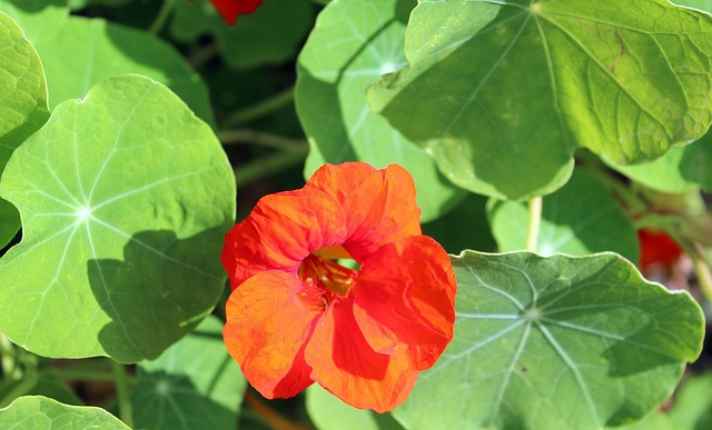
They also attract beneficial insects like ladybugs and bees, which help with pest control and pollination. Both lemon verbena and nasturtiums enjoy sunny spots and well-drained soil. Planting them together helps create a vibrant and healthy garden.
Lemon Verbena Care Tips
Lemon verbena is a perennial plant in warm climates, but it can be grown as an annual in cooler places. This aromatic and flavorful herb loves full sun and needs at least six hours of direct sunlight every day. It grows best in organically rich, well-drained soil with a pH of 6.5. Keep the soil consistently moist, but avoid soggy soil to prevent root rot.
| Care Tips | Details |
| Light | Needs full sun for at least six hours a day. |
| Soil | Prefers well-drained soil with pH 6.5. Avoid clay and soggy soil. |
| Watering | Keep soil moist, but not waterlogged, to avoid root rot. |
| Temperature | Best in warm climates; keep above 40°F. Can go dormant at 32°F. |
| Fertilizer | Use all-purpose fertilizer or compost tea for vigorous leaf growth. |
| Pruning | Prune in early spring to keep plant bushier and thicker. Remove spent flowers. |
| Pests | Watch for spider mites, aphids, and whiteflies. |
| Container Growing | Prune in early spring to keep plants bushier and thicker. Remove spent flowers. |
When growing lemon verbena indoors, ensure it gets enough light by using a plant light. Consistent watering is key, especially in dry or humid environments. This sprawling plant can reach up to 4–5 feet tall in a single season, so give it space to grow.
FAQ’s
Q: What Can I Plant Next to Verbena?
A: If you’re wondering what to plant next to Verbena, choose sun-loving, herbaceous perennials like coneflower and fox lily. Ornamental grasses, Jerusalem Sage, and Agastache also make great companions with their tall, delicate stems and graceful movement. These perennials ensure a vibrant, lively garden year after year.
Q: What Vegetables Grow Well With Lemon Verbena?
A: I love growing lemon verbena because it smells amazing and is very useful. Dill grows well with lemon verbena in the same sunny growing conditions. Dill keeps away spider mites and attracts beneficial insects like ladybugs, praying mantises, and wasps.
It’s also a tasty ingredient in many recipes. Planting lemon verbena and dill together makes my garden smell wonderful and keeps the plants healthy.
Q: Where Is the Best Place to Plant Verbena?
A: Verbenas love fertile soil and full sun. They grow well in pots or as bedding plants. For a nice garden, mix low-growing verbenas with taller varieties. Verbena bonariensis and Verbena hastata look great at the back of a border or in prairie-style planting.
Q: What Is the Best Fertilizer for Verbena?
A: To keep lemon verbena strong and healthy, apply a slow-release, all-purpose fertilizer and follow the package instructions. During the growing season, use a water-soluble fertilizer once a month. This routine ensures happy, blooming plants all season long.
Q: Does Lemon Verbena Grow Fast?
A: Lemon verbena grows fast in the spring if you plant it early. It continues to grow even after leaves are harvested. Avoid growing it from seeds as it is extremely slow-going and not recommended for home gardeners.
Conclusion
Lemon Verbena is a versatile, aromatic herb that can thrive with the right plants. Be mindful when selecting Lemon Verbena Companions for your garden. With good companions, you can create a harmonious, mutually beneficial ecosystem for healthy growth and abundant harvests.
From my own exploration, I found that companion plants like fragrant flowers such as marigolds and lavender, and edible options like nasturtiums, really enhance the beauty, flavor, and well-being of Lemon Verbena.
These companions provide practical benefits like pest control, pollination support, and soil improvement. In essence, a thriving garden is about balance and synergy. By carefully selecting plants that match Lemon Verbena’s needs and characteristics, you can create a vibrant, sustainable Lemon Verbena Companion Planting ecosystem.
This not only delights the senses but also nurtures the soul. When you plan your garden layout, finding the right plant companions brings joy to the journey of cultivating a beautiful, bountiful space. Seeing Lemon Verbena flourish with its compatible allies feels like magic.
Interested in companion planting? Take a look at my guide:

